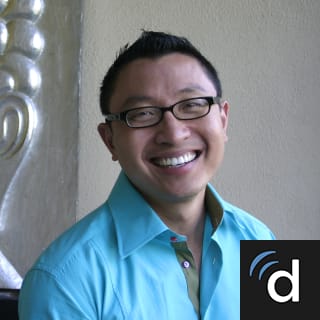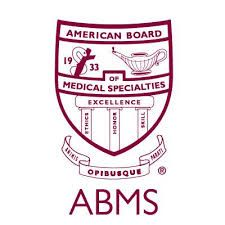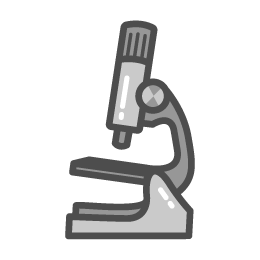
Join to View Full Profile
ONE GUSTAVE L. LEVY PLACE#1124New York, NY 10029
Phone+1 212-241-2552
Dr. Lee is on Doximity
As a Doximity member you'll join over two million verified healthcare professionals in a private, secure network.
- Gain access to free telehealth tools, such as our “call shielding” and one-way patient texting.
- Connect with colleagues in the same hospital or clinic.
- Read the latest clinical news, personalized to your specialty.
Summary
- Professor Benhur Lee is a virologist with wide-ranging research interests who joined the Department of Microbiology at the Icahn School of Medicine at Mount Sinai (ISMMS) in 2014. He holds the Ward-Coleman Chair in Microbiology. Prior to his recruitment to Mount Sinai, Dr. Lee spent 12+ years as a member of the Department of Microbiology, Immunology & Molecular Genetics as well as the Department of Pathology and Laboratory Medicine at the David Geffen School of Medicine at UCLA (University of California, Los Angeles). He joined UCLA in 2001 as an Assistant Professor, and was promoted to Associate Professor in 2007, and to full Professor in 2011. Dr. Lee graduated from Yale University School of Medicine in 1995 with an M.D. and induction into the National Medical Honor Society (Alpha Omega Alpha), and did his clinical and post-doctoral training at the University of Pennsylvania Medical Center (1995-2001) where he also served as Chief Resident (1997). He worked on HIV fusion and entry during his post-doctoral years under Dr. Robert Doms (1997-2001).
Dr. Lee is board-certified in Clinical Pathology and was an attending physician on the Transfusion Medicine Service at UCLA.
Dr. Lee has a special interest in emerging paramyxoviruses such as henipaviruses. He has made substantial contributions to our understanding of henipavirus entry and budding mechanisms. His latest interests include engineering paramyxovirus-based vectors for gene therapy applications. Dr. Lee has published over 140 peer-reviewed publications (h index=47), and sits on multiple editorial boards. He is a member of the NIH recombinant DNA Advisory Committee (RAC), and the ICTV Paramyxovirus study group. He has trained more than a dozen post-doctoral fellows, 16 graduate students, and has served on more than 60 PhD dissertation committees between UCLA and Mount Sinai.
Education & Training
 University of Pennsylvania Health SystemResidency, Pathology-Anatomic and Clinical, 1995 - 2000
University of Pennsylvania Health SystemResidency, Pathology-Anatomic and Clinical, 1995 - 2000 University of Pennsylvania Health SystemChief Residency, Pathology-Anatomic and Clinical, 1996 - 1997
University of Pennsylvania Health SystemChief Residency, Pathology-Anatomic and Clinical, 1996 - 1997 Yale School of MedicineClass of 1995
Yale School of MedicineClass of 1995 Santa Clara UniversityBS, Magna cum laude, 1984 - 1988
Santa Clara UniversityBS, Magna cum laude, 1984 - 1988
Certifications & Licensure
 CA State Medical License 2002 - 2027
CA State Medical License 2002 - 2027 American Board of Pathology Clinical Pathology
American Board of Pathology Clinical Pathology
Awards, Honors, & Recognition
- Recombinant DNA Advisory Committee (RAC) National Institutes of Health (NIH), 2016-2020
- Paramyxoviridae Study Group International Committee on Taxonomy of Viruses, 2017
- Scientific Advisor, Standards Working Group California Institute of Regenerative Medicine (SWG, CIRM), 2015-2017
- Join now to see all
Publications & Presentations
PubMed
- Evolutionary and structural basis of SLAMF1 utilization in morbilliviruses-Implications for host range and cross-species transmission.Ayumu Hyodo, Fumio Seki, Kento Fukuda, Kaede Tashiro, Yuki Kitai
Plos Pathogens. 2025-06-01 - Annual (2024) taxonomic update of RNA-directed RNA polymerase-encoding negative-sense RNA viruses (realm: kingdom: phylum).Jens H Kuhn, Scott Adkins, Sergey V Alkhovsky Альховский Сергей Владимирович, Wenxia An 安雯霞, Tatjana Avšič-Županc
The Journal of General Virology. 2025-06-01 - De novo antibody identification in human blood from full-length single B cell transcriptomics and matching haplotype-resolved germline assemblies.John Beaulaurier, Lynn Ly, J Andrew Duty, Carly Tyer, Christian Stevens
Genome Research. 2025-04-14
Journal Articles
- Development of a Neutralization Assay for Nipah Virus Using Pseudotype Particles.A.Tamin, B. H. Harcourt, M. K. Lo, J. A. Roth, M. C. Wolf, B. Lee, H. Weingartl, J-C. Audonnet, W. J. Bellini and Paul A. Rota, J Virol Methods, 160:1-6
- Expression and coreceptor function of APJ for primate immunodeficiency viruses.Puffer BA, Sharron M, Coughlan CM, Baribaud F, McManus CM, Lee B, David J, Price K, Horuk R, Tsang M, Doms RW, Virology, 276:435-44
- DC-SIGNR, a DC-SIGN homologue expressed in endothelial cells, binds to human and simian immunodeficiency viruses and activates infection in trans.Pohlmann S, Soilleux EJ, Baribaud F, Leslie GJ, Morris LS, Trowsdale J, Lee, B, Coleman N, Doms RW, Proc Natl Acad Sci USA. 98:2670-2675
- Join now to see all
Books/Book Chapters
Lectures
- Emerging paramyxoviruses: diversity and danger?Yale University Microbiology Seminar Series - 2/16/2017
- CRISPR-Cas9 Mediated Efficient and Complete Knock-In of Destabilization Domain-Tags Allows for Reversible and Regulated Knock-Out of Protein FunctionProtein Expression System Engineering, PEGS, Boston, MA - 4/28/2016
- Out of Africa: Emerging ParamyxovursesPrinceton University, Infectious Disease Dynamics Group Research Seminar, Princeton, NJ - 4/13/2016
- Join now to see all
Other
- BBC World NewsJulian Siddle, Discovery series on Broad Spectrum Antivirals
http://www.bbc.co.uk/programmes/p00m1c6l
Press Mentions
 Trivalent NDV-HXP-S Vaccine Protects Against Phylogenetically Distant SARS-CoV-2 Variants of Concern in MiceJune 6th, 2022
Trivalent NDV-HXP-S Vaccine Protects Against Phylogenetically Distant SARS-CoV-2 Variants of Concern in MiceJune 6th, 2022 What Is It About the Delta Variant That Makes It Spread so Easily?July 30th, 2021
What Is It About the Delta Variant That Makes It Spread so Easily?July 30th, 2021 No, There Is No Evidence the COVID-19 Vaccine Spike Protein Is ‘Cytotoxic’June 24th, 2021
No, There Is No Evidence the COVID-19 Vaccine Spike Protein Is ‘Cytotoxic’June 24th, 2021- Join now to see all
Grant Support
- Development of broadly neutralizing human monoclonal antibodies against henipavirusesICAHN SCHOOL OF MEDICINE AT MOUNT SINAI2025–2030
- Understanding the Tropism and Pathogenesis of PararubulavirusesICAHN SCHOOL OF MEDICINE AT MOUNT SINAI2024–2029
Viewing the full profile is available to verified healthcare professionals only.
Find your profile and take control of your online presence:









